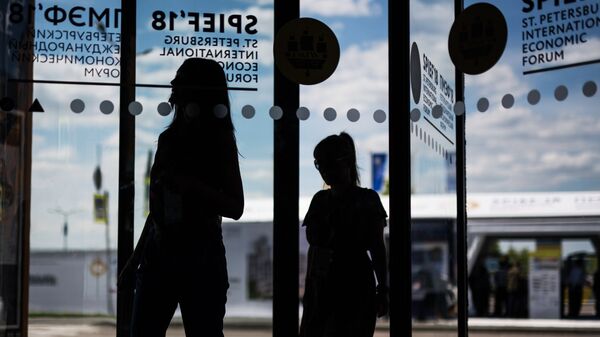"We participated in a conference at the US Chamber of Commerce, where there were almost all European AmChams. They promoted the idea that the temporary exemption from new tariffs on aluminum, which was made for Europe, should become permanent. It means that 'Europeans' are very offended and continue to be offended because they have not been removed from this duty, which was simply postponed for a while. They do not like this," Rodzianko said ahead of the upcoming St. Petersburg International Economic Forum (SPIEF).
According to Rodzianko, the situation with sanctioned Russian aluminum giant Rusal "directly and very strongly damages the economy of Germany and other European economies."
READ MORE: Main Topic of SPIEF-2018 Forum Revealed
On May 1, the European Commission said that the prolongation of the European Union’s exemption from US duties on imported steel and aluminum created uncertainty and negatively influenced the business climate. Brussels noted that it strove to find a mutually a beneficial resolution, but would not tolerate any pressure from the United States. The European Commission also said that it still hoped the bloc would be exempted from the US tariffs.
Rodzianko added that this issue was being raised by US businesses and authorities privately.
"I am sure that this issue is being raised, in the corridors, not publicly. And the market movement of metal prices is so much greater than tariffs, that the question of tariffs remains in the background," Rodzianko added.
In late March, the United States imposed 25-percent and 10-percent tariffs on imported steel and aluminum, respectively. According to US President Donald Trump, the tariffs will be in place for a long time, but Washington granted temporary exemptions to Canada, Mexico, Brazil, the European Union, Australia and Argentina until May 1. On Tuesday, Trump decided to extend the exemption on metal imports tariffs for the European Union, Canada and Mexico until June 1.
At least three US companies have signed or are negotiating special investment contracts (SPIC) with Russian authorities, President of the American Chamber of Commerce in Russia (AmCham Russia) Rodzianko said.
The goal of concluding SPICs is to stimulate the attraction of large-scale investment to help create and upgrade industrial production facilities inside Russia by providing industry incentives, loans, and stable conditions in which to conduct business.
READ MORE: US Business Continuing Projects in Russia Despite Sanctions — AmCham
"We know about three companies that have signed or are in talks on the SPIC: one is in the pharmaceutical sector, the second is in the aircraft manufacturing industry, and the third is engaged in manufacture of agricultural machinery," Rodzianko said ahead of the 2018 St. Petersburg International Economic Forum (SPIEF-2018).
The American Chamber of Commerce (AmCham) in Russia and Russia's Agency for Strategic Initiatives (ASI) will sign a cooperation agreement at the St. Petersburg International Economic Forum (SPIEF), Rodzianko said.
"Many US companies will be signing their agreements [at the forum]. We as a chamber will be signing a memorandum on cooperation with the Agency for Strategic Initiatives," Rodzianko said.
The AmCham president praised the work of the ASI, which, in his view, contributed to "a great shift in mindset of many [Russian] governors, who as a result are creating a more friendly environment for business."
SPIEF, held annually in Russia's second largest city of St. Petersburg, is a major global platform for business communication and discussion of crucial economic issues. This year's event will take place on May 24-26. Rossiya Segodnya International Information Agency is the official media partner of the forum.


